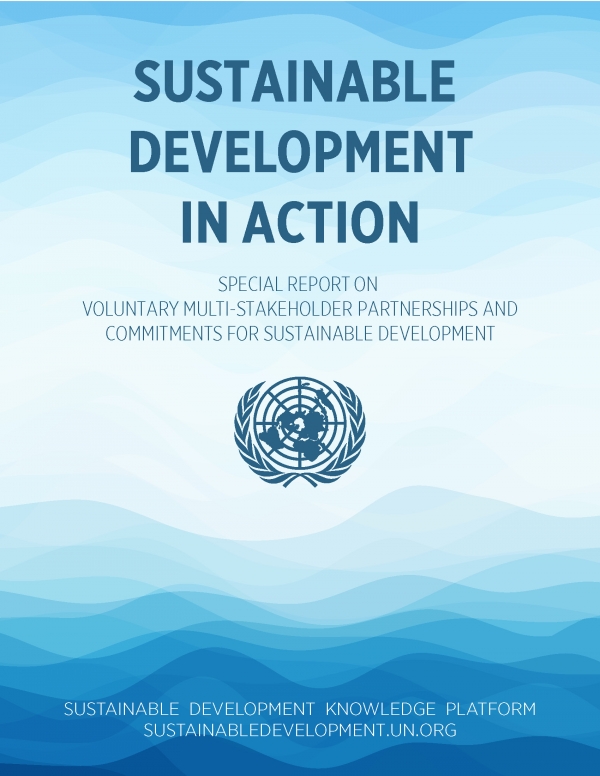2015 edition of SD in Action Report

The importance of engaging stakeholders at all levels has been repeatedly recognized at past international conferences, and throughout global conversations on the preparations for the post-2015 development agenda. The Rio+20 Conference, as one example, showed enhanced inclusiveness in the deliberation at the United Nations with the presence of hundreds of thousands of participants from governments, the United Nations System, business, civil society groups, universities, as well as those virtually following the conference from a far.
In the post-2015 development era, multi-stakeholder partnerships are expected to play an increasingly important role in the implementation of sustainable development. The proposed Sustainable Development Goal 17, which reads “Strengthen the means of implementation and revitalize the global partnership for sustainable development”, recognizes multi-stakeholder partnerships as important vehicles for mobilizing and sharing knowledge, expertise, technologies and financial resources to support the achievement of the sustainable development goals in all countries, particularly developing countries.
The effectiveness of multi-stakeholder partnerships, while dependent on many factors, will increasingly be tied to their ability to manage and share knowledge and expertise about the issues, processes, and solutions that they are promoting. The Sustainable Development Goals will be truly universal in nature – they will apply to all countries, and all sectors. This universality will require, inter alia, that the knowledge and expertise managed and possessed by multi-stakeholder partnerships need to be shared as widely as possible in order for it to reach beyond immediate constituencies and communities and to have an impact on a global scale.
The Division for Sustainable Development, UN-DESA, prepares an annual report on the progress of multi-stakeholder partnerships and voluntary commitments in realizing sustainable development, as follow-up to the Rio+20 Conference, and most recently, the 2014 Third International Conference on Small Island Developing States. The 2015 edition of the SD in Action Report reviews a numbers of action networks and multi-stakeholder partnerships with a particular focus on how knowledge and expertise is aggregated, managed and ultimately shared, in order to identify trends and challenges in this area, and to inform and prepare all stakeholders and partners as the world transitions into the post-2015 development era.

Facebook comments